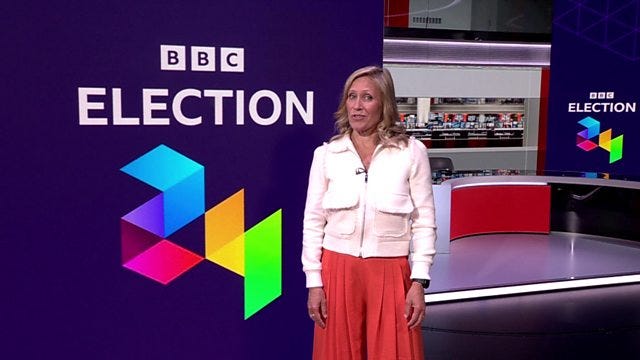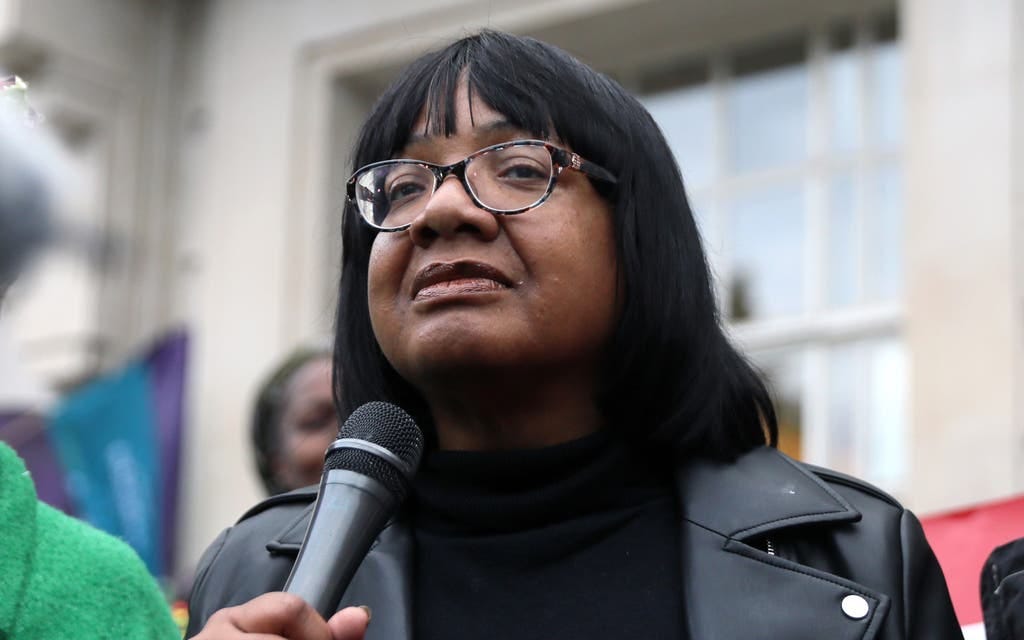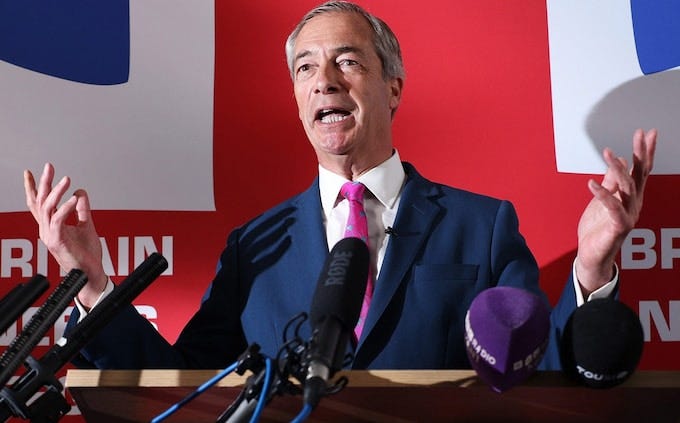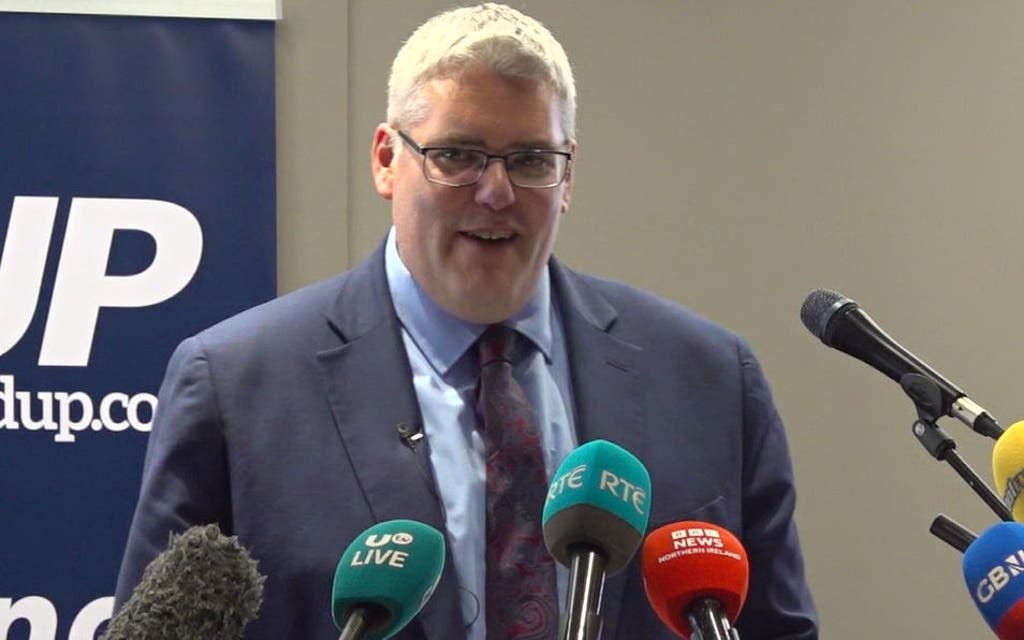Election '24: observations—29 May
A busy day of prohibitions, accusations and retractions, and we're still five weeks from the general election
Several things happened which caught my eye but none seemed really worth a full essay so I thought I’d compile some thoughts.
Labour “purges” the left
It has not been a day for much policy discussion, with the focus on whether or not Diane Abbott will be a Labour candidate at the election. Abbott has represented Hackney North and Stoke Newington since 1987 and was the first black woman elected to Parliament. However, in April 2023, she wrote a letter to The Observer in which she said that Irish, Jewish and Traveller communities “are not all their lives subject to racism”, unlike black people. She withdrew the remarks, apologised and explained that an early draft of the letter had been sent in error but the Labour Party withdrew the whip from her. After an internal inquiry, the whip was restored on Tuesday this week, but today Abbott said she would not be able to stand as a Labour candidate on 4 July. However, party leader Sir Keir Starmer denied this, telling the BBC “no decision has been taken barring her”.
The day rolled on in the same vein. Lloyd Russell-Moyle, MP for Brighton Kemptown, revealed that he had received an “administrative suspension letter” from the Labour Party after an allegation about his conduct eight years before; because of the length of time the investigation into this allegation would take, he was informed that he was not eligible to be a parliamentary candidate. Russell-Moyle said he was “gutted”, and many have ascribed his sudden defenestration to the fact that he is on the left of the party. Some hours afterwards, the Labour candidate in Chingford and Woodford Green, Dr Faiza Shaheen, was told she would not be endorsed, despite her selection in 2022 and having cut Sir Iain Duncan Smith’s majority to 1,262 at the last election. The reason given was that she had liked tweets which supposedly downplayed antisemitism.
Is this a purge of the left by Starmer? The truth is I don’t know: it is clumsy and inelegant if so, but he and his advisers may take the view that easing out left-wing candidates is worth some bad publicity. While political observers like me watched today’s events and though Labour had blundered, looking both brutal and inept, it may well be that most voters will be barely aware of the row and Starmer can therefore endure any criticism. On Sunday I posted this profile of the Labour leader by Dan Hitchens, which suggested that Starmer was brutally focused on achieving his ends; Helen Lewis of The Atlantic noted in 2022 that he was “ruthless” and argued that the “cumulative effect of his leadership has been to marginalise the left utterly”. It may be that he has decided to risk some of his enormous opinion poll lead and eliminate potential rebels and troublemakers.
Have these would-be candidates been treated unfairly? Does the same apply to former leader Jeremy Corbyn, suspended in 2020 and forbidden from being a Labour candidate in 2023, who will stand as an independent in Islington North, where he has been the MP for 41 years? Perhaps: but politics is a rough game. Corbyn has always been rebellious, voting against the party whip 428 times while Labour was in government between 1997 and 2010, and parties are entitled to request some degree of collective loyalty and responsibility.
As for Abbott, no-one disputes her historic significance, and the undoubted racism she has faced and continues to face, but she has also expressed some controversial views: in 1984 she explicitly endorsed the Republican cause in Northern Ireland, saying “every defeat of the British state is a victory for all of us”; in 1996, she argued that “blonde, blue-eyed Finnish girls” were not suitable to be nurses in a hospital in her constituency because they had “never met a black person before”; in 2008, she mused on the BBC’s This Week “I suppose some people will judge that on balance Mao [Zedong] did more good than harm”; in 2012, she caused considerable offence by tweeting that “White people love playing ‘divide and rule’. We should not play their game”. This is not to say she must be forbidden from being a Labour candidate, but, like Corbyn, she has not always shown much regard for party loyalty.
One argument I reject emphatically is that she should be allowed to be a Labour candidate because she was the first black woman elected to Parliament. It was an historic achievement, but it is not carte blanche (if you will forgive the phrase); it does not make her except from justified criticism. Whether the issue of her letter to The Observer is reason enough to exclude her is another matter. I happen to think it was deeply wrong-headed and offensive, and I’m dubious about the notion that it was only a first draft, but that is a matter for the Labour Party. Ultimately, however, no-one has an absolute right to a party’s nomination, whatever the colour of their rosette or their length of service.
Who else should be banned?
Jess Phillips, standing for Birmingham Yardley, wrote to the prime minister, demanding that his predecessor Liz Truss be removed as Conservative candidate for South West Norfolk. The reason she adduced was that Truss had agreed to appear as a guest on the Lotus Eaters podcast, co-hosted by Carl Benjamin (who tweets as “Sargon of Akkad”, named after the 24th/23rd century BC ruler who is regarded as the first person to rule over an empire). Phillips accused Benjamin of “despicable views about violence against women” and argued that anyone appearing on his “hateful platform” was not fit to be a Member of Parliament. It should be noted that Truss was in fact interviewed by Connor Tomlinson, another Lotus Eaters host.
Let’s be clear at this point: Benjamin is a vile crank. In 2016, he “joked” on Twitter that he “wouldn’t even rape” Phillips, refused to apologise, and in 2019 said “I’ve been in a lot of trouble for my hardline stance of not even raping her. I suppose with enough pressure I might cave. But let’s be honest, nobody’s got that much beer.” He claimed he was being “attacked and misrepresented”, said that his remarks about Phillips were a “joke” and described the Lotus Eaters as “a popular and mainstream conservative publication, which is well-liked and well-respected by our peers”. He then protested that Phillips, “as a person in power, takes the time to publicly attack me, a private citizen”. Nobody who wants to be regarded as within the political mainstream should be anywhere near him.
Truss is not engaging with Benjamin, however, but with his colleague Tomlinson. Has she made a misjudgement in accepting the invitation? This is not her first misstep of this kind: at the Conservative Political Action Conference in Maryland in February, she appeared alongside Steve Bannon, briefly White House chief strategist to Donald Trump, and said nothing as he defended far-right agitator Tommy Robinson. Neither of these actions equates to endorsing the views of Bannon, Robinson, Tomlinson or Benjamin, but certainly her interaction with Bannon was unwise and demonstrated poor judgement.
In this case, however, Phillips appears to have acted in haste, misapprehending a story and using it as the basis for a surge of moral outrage, what Aneurin Bevan might have called an “emotional spasm”. I don’t doubt Phillips’s sincerity: Benjamin’s remarks about her were unacceptable in public discourse, and she is a sincere, long-standing and well-intentioned campaigner on women’s rights and violence against women. It seems that LBC have now deleted tweets covering the story, and it will be interesting to see how Phillips reacts. I hope that she will accept gracefully that she misunderstood, made a mistake which anyone can make in the heat of an election campaign, and apologise, though she need not withdraw any of her opinions on Benjamin. But in raising the matter of Truss with Sunak, she seemingly got it wrong and did them both a disservice. This is not the end of the world.
It has raised a wider question: does appearing on a podcast associated with a man with repellent views make someone unsuitable to be a Member of Parliament? That, I think, is difficult. It is hard to make a definitive judgement without having heard the interview, but to say that Truss should be barred from standing for Parliament for agreeing to an interview—had she been questioned by Benjamin—seems, instinctively, draconian. Readers will remember, for example, that Jeremy Corbyn shared a platform with Hajo Meyer, a German-Dutch physicist who compared Israel to Nazi Germany, and Dr Haidar Eid, a Palestinian activist who said of Israel that “Nazism has won because it has finally managed to Nazify the consciousness of its own victims”. Corbyn later apologised and admitted “I have on occasion appeared on platforms with people whose views I completely reject”.
There are two main defences here, I think. The first, and stronger, is that politicians should challenge those with unpleasant or violent views, wherever they are, but Truss did not do that with Bannon and we don’t know whether she would have done so with Benjamin. The second argument is that politics is a messy business, and politicians will sometimes interact with people whose views they don’t share and which many will find abhorrent. So long as they don’t endorse those views, I think there is a case for erring on the side of freedom. But I accept it’s a difficult thing to judge. In the end, I tend to hope that the public are sensible and reject people who say awful things.
Farage teases the Tories
Nigel Farage, honorary president of Reform UK (and the only “person with significant control” of Reform UK Party Limited), announced last week that he would not be a candidate in this general election: he has stood for the House of Commons seven times over the last 30 years and has always been defeated. I wrote a profile of Farage for The Hill which was published today. Today he made an extraordinary remark, suggesting to The Sun’s Harry Cole that he could be persuaded to conclude some kind of deal with the Conservatives. He argued that he had performed “some huge favours” for the Conservative Party in the past, and wondered aloud “What are they going to do back for me?” He dismissed the idea of being awarded a peerage, but then said “Give me something back. We might have a conversation".”
It is one of Farage’s uncanny gifts to be able to say out loud things which other politicians would be afraid to articulate, and to do so without shame. It is not clear what kind of demand he might make, or what he might deliver in return, though at the last election his Brexit Party stood down its candidates in 317 seats held by Conservatives, which may have amplified the government’s majority. Reform UK’s policy platform is a heady mix of small government, lower taxes, hardline immigration and law and order policies and some increases in public spending.
If Farage wanted policy concessions, one would imagine they would be on immigration, although he has repeatedly accused the Conservatives of “betraying” the electorate on the issue. Earlier this month, former cabinet minister Sir Jacob Rees-Mogg called for his party to make a “big, open and comprehensive offer” to Reform UK, including giving Farage a ministerial role, rehabilitating Boris Johnson and finding room for Reform UK leader Richard Tice and deputy leader Ben Habib. Now that the election campaign has begun, Rishi Sunak has less scope to make such an offer (not that he would be remotely minded to do so). The most likely explanation is that Farage, a veteran and skilled manipulator, is simply fuelling media interest, but we should keep an eye on him for the next few days.
Unionist unity…?
The Democratic Unionist Party’s leader, Gavin Robinson, ratified in post by his executive, has confirmed that the party will not field candidates in Fermanagh and South Tyrone or North Down.
In Fermanagh and South Tyrone, Sinn Féin’s Michelle Gildernew had a majority of 57 over the Ulster Unionist Party’s Tom Elliott in 2019. (In 2010, her majority was only four.) Gildernew is not standing this time, as she’s seeking election to the European Parliament, and today the general secretary and chief executive of the Royal College of Nursing, Pat Cullen, announced that she would be seeking the party’s nomination. The DUP is endorsing the UUP candidate, Cllr Diana Armstrong, whose father, Harry West, led the UUP from 1974 to 1979 and was MP for Fermanagh and South Tyrone for a few months between the February and October elections in 1974. Having a single Unionist candidate should make it a contest but given Sinn Féin’s recent electoral progress their candidate—whoever is selected—must be the favourite. He or she will not take a seat in the House of Commons under the party’s long-standing policy of abstentionism.
North Down is a very different constituency. There are virtually no Nationalist or Republican voters: neither Sinn Féin nor the SDLP even fielded a candidate in 2019, and in 2017 the total Nationalist vote was less than 1,000. However, it is not by any means a safe seat. Dr Stephen Farry of the Alliance Party has been the MP since 2019, but for 18 years it was held by Sylvia, Lady Hermon, the widow of former head of the Royal Ulster Constabulary Sir John Hermon. Initially an Ulster Unionist, she stood as an independent in 2010, 2015 and 2017 and was comfortably re-elected. At this general election, Farry is facing a UUP candidate in the person of Iraq War veteran Colonel Tim Collins and an independent Unionist (and former DUP member) Alex Easton, who is currently a Member of the Northern Ireland Assembly. Easton stood in 2017 and will be supported by the DUP, as well as by Traditional Unionist Voice and their electoral partners Reform UK. Data supremo Peter Donaghy predicts a narrow hold by Farry.
It is worth noting that there was a single Unionist candidate in three of Northern Ireland’s 18 constituencies at the last election. Sinn Féin won all three.
Fin
By the time you read this, Parliament will have been dissolved—possibly. The Privy Council will meet the King (collectively “The King’s Most Excellent Majesty in Council”) and he will sign a proclamation of dissolution, to which he will instruct the lord high chancellor, Alex Chalk, to affix the Great Seal. The proclamation formally dissolves Parliament, discharges MPs and peers, orders the lord chancellor and the secretary of state for Northern Ireland to issue writs summoning peers to the House of Lords and for the election of MPs to the House of Commons and sets the date for the first meeting of the new parliament, the Fifty-Ninth of the United Kingdom. The text of the proclamation issued in 2010 can be read here. So as of today there are no MPs.
When, exactly, does it happen? I was drawn into a discussion about this on social media by the excellent and learned Dr Benjamin Lewis, who wanted to know at what point the dissolution took place. My view, which I have now had reinforced by the Parliament website, is that it occurs when the Great Seal is affixed to the proclamation and it becomes a legal document. The Privy Council meeting which approved the prorogation of Parliament was at 10.30 am, so, assuming a similar schedule on Thursday 30 May, dissolution will take place shortly after that. The United Kingdom will have no legislature for the next few weeks, but don’t worry, the government remains in office.








If I had wrote and said what abbot did when I was a cop, I'd be suspended, possibly for years, subject to gross misconduct allegation, almost certainly sacked. Then iopc would investigate me. Almost certainly send file to cps, who would decide whether to prosecute me. However, abbot, gets away with it. Why? She is a MP, who seem to operate in a privileged environment. She is black, female and on the left. All of which seems to work in her favour. This simply stinks of moral hypocrisy and Value corruption. And is further evidence to me to substantiate my intense distrust of every politician and whole of politics. I can barely bring myself to vote.